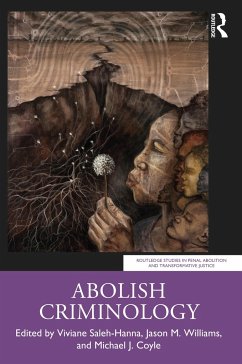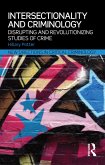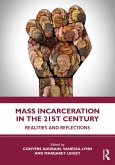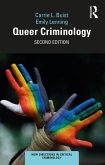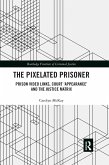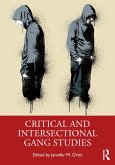Abolish Criminology presents critical scholarship on criminology and criminal justice ideologies and practices, alongside emerging freedom-driven visions and practices for new world formations.
The book introduces readers to a detailed history and analysis of crime as a concept and its colonizing trajectories into existence and enforcement. These significant contexts buried within peculiar academic histories and classroom practices are often overlooked or unknown outside academic spaces. This causes the impact of criminology's racializing-gendering-sexualizing histories to extend and grow through criminology's creation of crime as a very limiting way of thinking about violence and what can be done about it. These limitations allow the concept of crime to be weaponized and enforced through the criminal legal system. Abolish Criminology offers an accessible, critical study of criminology in written, visual, and poetic forms, and through the perspectives of university students, professors, imprisoned and formerly imprisoned scholars, poets, and visual artists. This allows readers to engage in multi-sensory, inter-disciplinary, and multi-perspective teachings on criminology's often discussed but seldom interrogated mythologies on violence and danger, while bringing to light the wide-reaching enforcements of violence through criminology's research, theories, agencies, and dominant cultures.
Abolish Criminology serves the needs of undergraduate and graduate students and educators in the social sciences, arts, and humanities. It will also appeal to scholars, researchers, policy makers, activists, community organizers, social movement builders, and various reading groups in the general public who are grappling with increased critical public discourse on policing and criminal legal reform or abolition.
The book introduces readers to a detailed history and analysis of crime as a concept and its colonizing trajectories into existence and enforcement. These significant contexts buried within peculiar academic histories and classroom practices are often overlooked or unknown outside academic spaces. This causes the impact of criminology's racializing-gendering-sexualizing histories to extend and grow through criminology's creation of crime as a very limiting way of thinking about violence and what can be done about it. These limitations allow the concept of crime to be weaponized and enforced through the criminal legal system. Abolish Criminology offers an accessible, critical study of criminology in written, visual, and poetic forms, and through the perspectives of university students, professors, imprisoned and formerly imprisoned scholars, poets, and visual artists. This allows readers to engage in multi-sensory, inter-disciplinary, and multi-perspective teachings on criminology's often discussed but seldom interrogated mythologies on violence and danger, while bringing to light the wide-reaching enforcements of violence through criminology's research, theories, agencies, and dominant cultures.
Abolish Criminology serves the needs of undergraduate and graduate students and educators in the social sciences, arts, and humanities. It will also appeal to scholars, researchers, policy makers, activists, community organizers, social movement builders, and various reading groups in the general public who are grappling with increased critical public discourse on policing and criminal legal reform or abolition.

